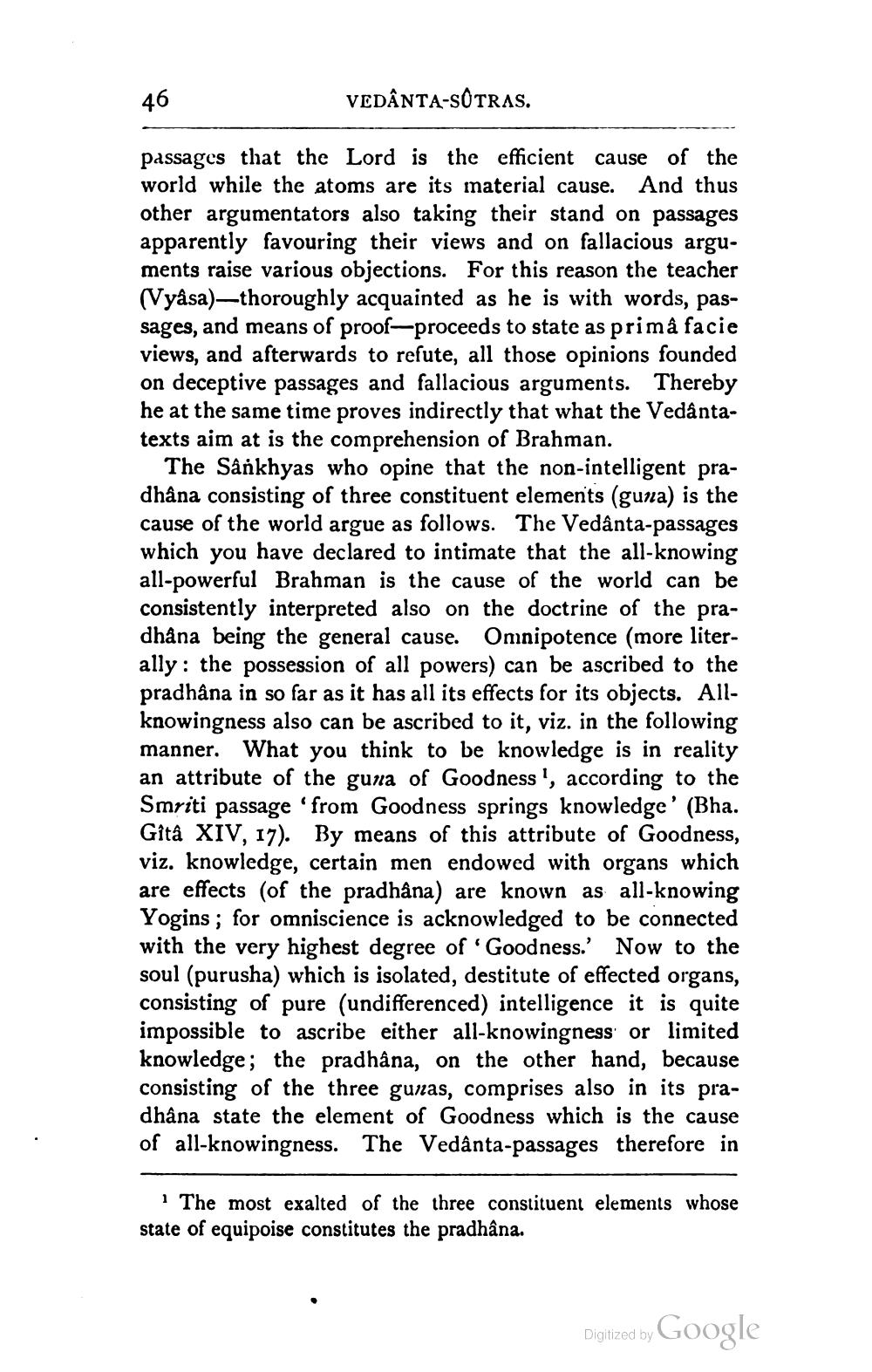________________
46
VEDÂNTA-SOTRAS.
passages that the Lord is the efficient cause of the world while the atoms are its material cause. And thus other argumentators also taking their stand on passages apparently favouring their views and on fallacious arguments raise various objections. For this reason the teacher (Vyasa)-thoroughly acquainted as he is with words, passages, and means of proof-proceeds to state as primâ facie views, and afterwards to refute, all those opinions founded on deceptive passages and fallacious arguments. Thereby he at the same time proves indirectly that what the Vedantatexts aim at is the comprehension of Brahman.
The Sankhyas who opine that the non-intelligent pradhâna consisting of three constituent elements (guna) is the cause of the world argue as follows. The Vedanta-passages which you have declared to intimate that the all-knowing all-powerful Brahman is the cause of the world can be consistently interpreted also on the doctrine of the pradhåna being the general cause. Omnipotence (more literally: the possession of all powers) can be ascribed to the pradhâna in so far as it has all its effects for its objects. Allknowingness also can be ascribed to it, viz. in the following manner. What you think to be knowledge is in reality an attribute of the guna of Goodness', according to the Smriti passage 'from Goodness springs knowledge' (Bha. Gîtâ XIV, 17). By means of this attribute of Goodness, viz. knowledge, certain men endowed with organs which are effects (of the pradhana) are known as all-knowing Yogins; for omniscience is acknowledged to be connected with the very highest degree of Goodness. Now to the soul (purusha) which is isolated, destitute of effected organs, consisting of pure (undifferenced) intelligence it is quite impossible to ascribe either all-knowingness or limited knowledge; the pradhana, on the other hand, because consisting of the three gunas, comprises also in its pradhâna state the element of Goodness which is the cause of all-knowingness. The Vedanta-passages therefore in
The most exalted of the three constituent elements whose state of equipoise constitutes the pradhâna.
Digitized by
Digized by Google




